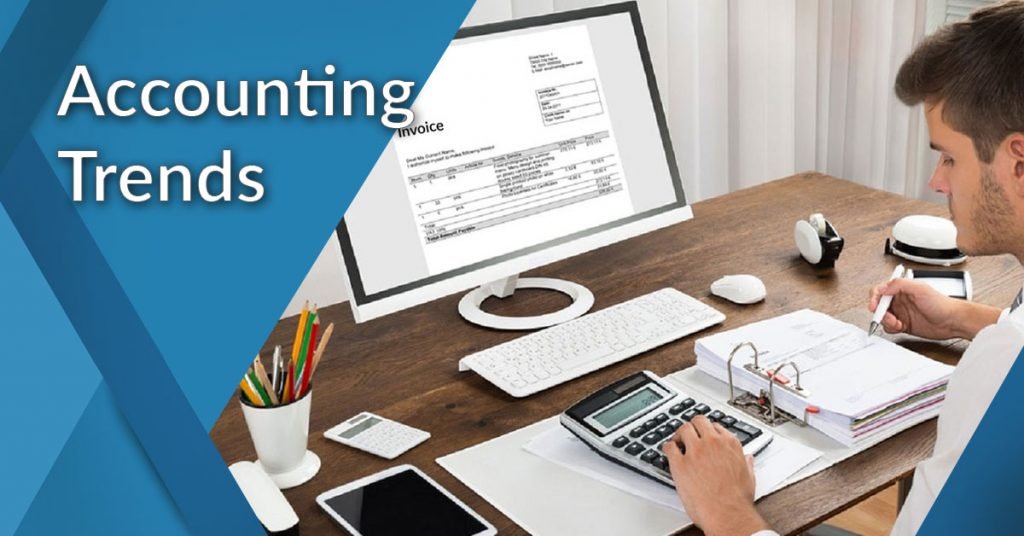Accounting and bookkeeping processes have been in use since 300 BC. The ancient Iranians kept tokens and bookkeeping scripts, while the Phoenicians had an alphabetic system just for bookkeeping. Centuries later, accounting still serves the same purpose to modern businesses as it did to the mercantile class of ancient civilizations. It’s still meant to help companies keep an organized record of their financial transactions, budget the money in their possession, and make major financial decisions. But it’s no secret that the technologies being used for accounting today are much more sophisticated than they have ever been.
More business people have sought to modernize their accounting systems to be faster, more accurate, and efficient. This mastery over accounting and bookkeeping practices counts for a lot now that doing business is demanding. That holds especially for 2021, a year in which companies are still fighting to stay alive in the economic aftermath of COVID-19. There’s the pressure to accomplish ordinary business processes, like accounting, remotely instead of onsite. There’s also a greater impetus to utilize costs, cut out redundancies in the workflow, and be aware of the company’s financial situation in real-time.
Now that it’s on businesses to either sink or swim, the improvement of crucial processes like accounting is vital. So, if you’re involved in the financial side, you should be aware of the accounting trends currently affecting your industry. Knowing about the various accounting technologies available today could help you choose an appropriate one for your own company.
Here’s a list of six accounting trends you can expect to see this 2021. Keep your eyes peeled for accounting solutions that could bolster your business performance.
Increased Usage of Accounting Software
Nowadays, it’s rare for even small businesses to be reliant on pen-and-paper bookkeeping. A large chunk of today’s small-to-medium enterprises (SMEs) uses spreadsheets to get their accounting done. But more companies have started upgrading their accounting systems to accommodate some form of accounting software. This involves either a standalone solution that does accounting processes or an all-inclusive ERP system software with an accounting module built-in.
The trend will be for businesses to invest in innovative accounting software to gain extra mastery over their accounting and bookkeeping processes. If you plan to do the same, think about what kind of accounting solution would fit your business’s needs.
Increased Reliance on Automation Technologies for Accounting Process
Modern accounting practices are now more reliant on automation technologies, as opposed to calculating by hand. The trend is for accountants to work smarter and to leave rote tasks to computers. Automation can be extremely useful in elevating productivity and cutting down accounting-related costs, such as those attributed to human error. Thanks to automation, the work is done both faster and more accurately. Accountants also have their energies freed up for more intensive tasks, like decision-making and financial reporting.
There are several ways that you can incorporate automation technologies into your accounting workflow. You could automate your payroll, for example. You could also automate the amounts to be charged on your accounts payable and accounts receivable. All the same, increased automation could save your accounting team lots of time, money, and mental energy for other financial tasks.
The Shift Towards Cloud-Based Accounting
Before, accounting work was something that businesses would always do onsite. But in recent years, the outsourcing revolution and the hybrid or work-from-home arrangements due to the coronavirus have changed all that. Companies now need to access their accounting systems from multiple sites, and some may want to track their financial situation in real-time, 24/7.
Luckily, thanks to cloud-based accounting technologies, these needs can be met for as long as staff have an internet connection. If you use cloud-based account solutions for yourself, you can do most of the work you’d usually do onsite from your home office. You can also align your accounting data with your inventory, sales, and cash flow data on the cloud. Besides, it will be easy to store and back all of these up. That’s why it’s convenient to ride on this trend and to explore cloud-based accounting solutions for your own business.
The Adoption of More Data-Driven Approaches to Accounting
There’s also a trend for using what’s called “big data” in accounting and bookkeeping. This means having an accounting system that can do more than balancing the numbers. Businesses are now exploring data analytics features on their accounting solutions, which allow them to analyze their financial situation in-depth. Having this level of insight built into an accounting system is extremely helpful to businesses, especially in decision-making. With a more data-driven approach, business owners and their financial teams can zero in on opportunities to save costs and increase their profit margins.
How would you be able to use data analytics reports in your accounting system? For one, you could use the analytics features on your accounting solution to quickly generate an accurate and comprehensive financial report for better decision making. Second, you could analyze data from your AR to determine which clients aren’t paying on time and what factors are involved in their late payments. Suffice to say, data analytics features will be a boon to your company’s accounting work.
The Usage of Artificial Intelligence in Accounting Processes
Artificial intelligence, or AI, involves using computers to perform tasks that typically need human intelligence. AI used to be the stuff of science fiction, but it is no longer alien to the general public. AI now has myriad uses in consumer technologies and business technologies for processes like accounting.
For example, AI can process human languages and numbers, then analyze large volumes of accounting data at high speed. Thanks to AI accounting technologies, your accounting team won’t have to devote so much brainpower to derive accounting insight. With AI’s help, they can acquire it in a more timely manner and implement any necessary changes to the accounting workflow much faster.
The Adoption of Blockchain
Blockchain is a type of technology that stores “blocks” of information and sequences them chronologically in a chain. In the context of accounting, blockchain could be used to store financial data, like on the company’s assets and obligations. The company can then maintain a “chain” of ledgers that host their updated financial info.
Several prominent businesses around the world have since opened their blockchain wallets and used the technology for themselves. The key selling point of blockchain for accounting is how much money it saves on maintaining accounting ledgers. This may be the first time you’ve heard of blockchain, but it won’t be the only mention of it you’ll see. One day soon, you may consider it for your accounting processes.
Conclusion
When it comes to vital business processes like accounting and bookkeeping, you need to know which trends are emerging in the industry. It’s not in your best interest to be left behind by your competition. It also isn’t suitable for your financial situation to stagnate when, in reality, you could earn more thanks to updated accounting processes.
Keep abreast of today’s accounting technologies and consider how they can help your company. This is one of the best things you can do to future-proof your business and ensure excellent financial management for it in the coming years.


